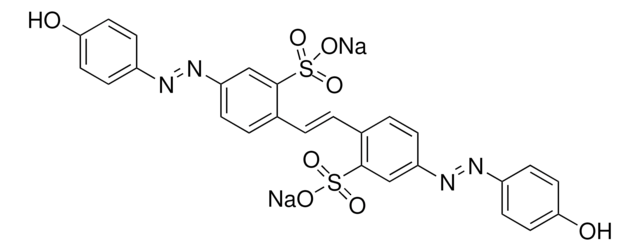750530
Carbon nanotube, single-walled
98% (Metallic), avg. no. of layers, 1
Synonym(s):
IsoNanotubes-M™, SWCNT, SWNT, Single wall carbon nanotube
About This Item
Recommended Products
Quality Level
Assay
2% (Semiconducting)
98% (Metallic)
form
solid
feature
avg. no. of layers 1
manufacturer/tradename
NanoIntegris, Inc.
L
0.3-5 μm
diameter
1.2-1.7 nm
mp
3652-3697 °C (lit.)
density
1.7-1.9 g/cm3 at 25 °C (lit.)
SMILES string
[C]
Looking for similar products? Visit Product Comparison Guide
Related Categories
General description
Application
Research applications include:
- Electronics
- Sensors
- Composites
- Energy Storage
- Study of Life Science systems
Preparation Note
Legal Information
Storage Class Code
11 - Combustible Solids
WGK
WGK 3
Flash Point(F)
Not applicable
Flash Point(C)
Not applicable
Choose from one of the most recent versions:
Already Own This Product?
Find documentation for the products that you have recently purchased in the Document Library.
Customers Also Viewed
Articles
We presents an article concerning the applications of high-purity single-walled nanotubes in electronic and biomedical fields.
Single-Walled Carbon Nanotubes synthesized by the Super-Growth Method & their properties & applications, including dispersing SGCNTs, SGCNT-polymer composites & SGCNT-metal composites are discussed.
Boron nitride nanotubes (BNNT) are close structural analogs of carbon nanotubes (CNT), which are high aspect ratio nanotubular material, where carbon atoms are alternately substituted by nitrogen and boron atoms.
A nanocomposite is typically defined as a mixture between a host material (e.g., polymer matrix) and nanofillers with at least one dimension of less than 100 nm.
Our team of scientists has experience in all areas of research including Life Science, Material Science, Chemical Synthesis, Chromatography, Analytical and many others.
Contact Technical Service






